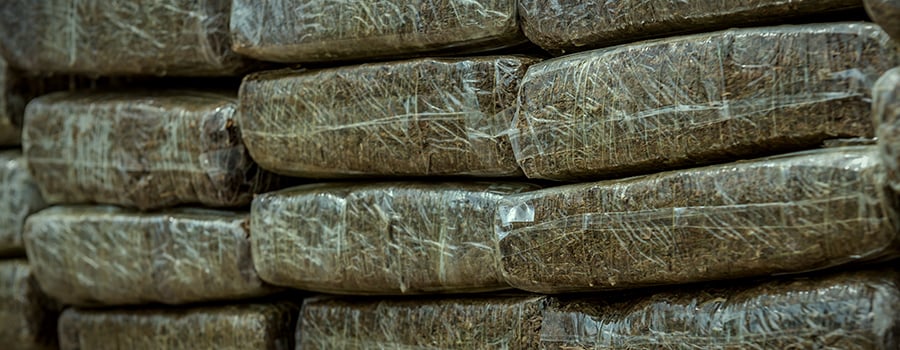.

The Statistics Are In - Legalization Of Cannabis Reduces Crime
Does legalization instigate or reduce crime? The evidence is already in. In fact, in every jurisdiction where at least medical cannabis has been legalized, there has been a dramatic drop in all kinds of crime. So why is Trump's Justice Department claiming otherwise?
It is impossible not to have heard one of the greatest canards behind the modern war on drugs. Legalization causes all sorts of supposed societal ills. That includes the worn stereotype that “drugs cause crime.” In fact, this idea specifically was behind the original crusade to get the Controlled Substances Act of 1970 passed in the first place.
This “law and order” approach became the subsequent mantra of the day and the ubiquitous drug policy of every subsequent American administration. It also spread overseas. The “War on Drugs” was launched globally.
By the late 1990’s, it became very apparent this approach had significant casualties. This included a strong connection between being non-white and being prosecuted under aggressive drug laws. Particularly in the United States.
At the beginning of the new century, the debate finally began to change. Why? Fighting a massive heroin epidemic, Portugal decided to do something different. In 2001, the country fully decriminalized all drugs. By doing so, the drug-use issue was removed from the law enforcement agenda. Instead, it was re-defined as a matter of public health. Addiction began to plummet. The trend has continued to this very day.
Even more interesting? Crime rates fell too. The same trend can be observed in “legal” American states like Colorado, where the passing of recreational cannabis has been largely successful.

MEDICAL CANNABIS LEGALIZATION DROPS CRIME RATES
As of 2014, this issue began to gain more traction as legalization kicked up a notch. And the statistics blew the lid off conventional wisdom. In fact, not only did violent crime rates drop in Colorado after legalization, the trend was subsequently observed in all other legalizing states. It has also been seen in Canada. This is a big reason that the country decided to move forward on recreational reform too.
And as of 2014, researchers at the University of Texas also published even more interesting findings. Medical marijuana legalization specifically had a dramatic impact on reducing crime rates.
Today, in the US and in Europe, this theory has now seen multiple confirmations. Legalization - even if “just” medical at first - is a tactic to reduce the power and value of the black market. From Spain to the Netherlands, Germany to Switzerland. Even Turkey just legalized medical grow operations in a clear political statement to limit black market traffic.
In Central and South America, too, this is an increasingly common conversation. More and more countries are stepping into the legalization camp. And their biggest and first reason is very clear: it cuts the power of the cartels.
Therefore, it is perfectly natural with things going in the right direction, to find a bump in the road. In other words, there is always going to be backlash.
THE ANTI-CANNABIS EMPIRE STRIKES BACK
Despite amazing advances over the last decade in particular, the legalization battle is not over. And that includes a debate about the connection between cannabis and crime.
In Europe, this agenda is being set by three different conversations. There are “regional,” if not statewide experiments with full rec. See Spain. See Holland. Both are touted as markets that undercut the black market. Greece, no matter which direction it ultimately goes, will probably fall into a similar camp. The country is being given tacit support internationally on their decision to legalize. The reason is very simple; it is also purely economic.

On the other hand, there is a more nuanced discussion on the table too. Especially in “medical only” countries. These now include Germany, Turkey, the Czech Republic, Croatia, and Poland. They are all tackling this as more of a “public health” than crime issue now. Their first focus, beyond medical efficacy, is indeed crime. How effective a “medical only” approach will be is subject to discussion. As is the case right now in places like Israel. There, they have not only decriminalized cannabis earlier in the year, but now plan to export it.
The third conversation is now underway in Switzerland. This model is also designed to destroy black market operations. The legal, low-THC market is taking off there as a result. And all those legal sales are taxed at considerable benefit to the Swiss treasury, instead of the black market, terrorism, and crime.
How fast legalization will develop is a subject on the agenda for legislators across the European continent.
WHY IS THE UNITED STATES BACKTRACKING?
At present, fundamental questions appear to be yet unanswered with hard data. Or at least, that is the opinion of the current Trump administration, if not the Jeff Sessions-run Department of Justice.
Rumblings of a showdown between the DOJ and the establishing pot biz have been mounting. Since last November at least. This February, Sessions specifically claimed that legalizing marijuana causes violent crime with no data to back this up. This is just one more disturbing development for the already stigmatised industry.
This time, however, is unlike previous generations and campaigns. There has been a massive sea change. Whole countries are moving forward with legalization efforts right now.
And even in the United States, there is clear and direct evidence that legalization has a real-world impact on crime. This includes general crime and other stats. In “Going to pot? The impact of dispensary closures on crime,” USC Marshall School of Business and UC Irvine researchers found dramatic evidence that when governments force dispensaries to close, local crime rates shoot up.
Despite evidence that the United States is headed in the right direction, the DOJ wants to go backwards. What gives?

THIS IS A POLITICAL RED HERRING
The lesson from all of this? Marijuana legalization actually does reduce violent crime. That includes non-drug related crime too. Like murder. It also performs other functions that remove criminality from the equation. This starts with creating a regulated market that pays taxes, instead of sequestering those profits for nefarious purposes.
There are, however, many who have different political agendas. In the Trump administration right now, this is also an issue that is closely tied to blatant racism.
It is for exactly such reasons that minority business owners within the cannabis industry are starting to take a stand. In fact, this issue has begun to boil over in California already. Minority ganjapreneurs have started a boycott on an upcoming business expo in LA. Why? Roger Stone, a top Republican political operative has been invited to give the keynote.
Despite his long pro-pot stance, his other political leanings are what sparked the ire. Including his involvement in getting Donald Trump into the White House. Not to mention Jeff Sessions’ installation at Justice.
While it is unlikely that the Trump DOJ is going to get any friendlier, one thing is certain. Within the cannabis industry itself, the data is there to prove the claim. Not to mention overwhelming support from consumers and even many legislators. The industry itself is the best antidote to cartels and other drug-related crimes.
And this time, for the first time, the industry is also well primed to defend itself.







































